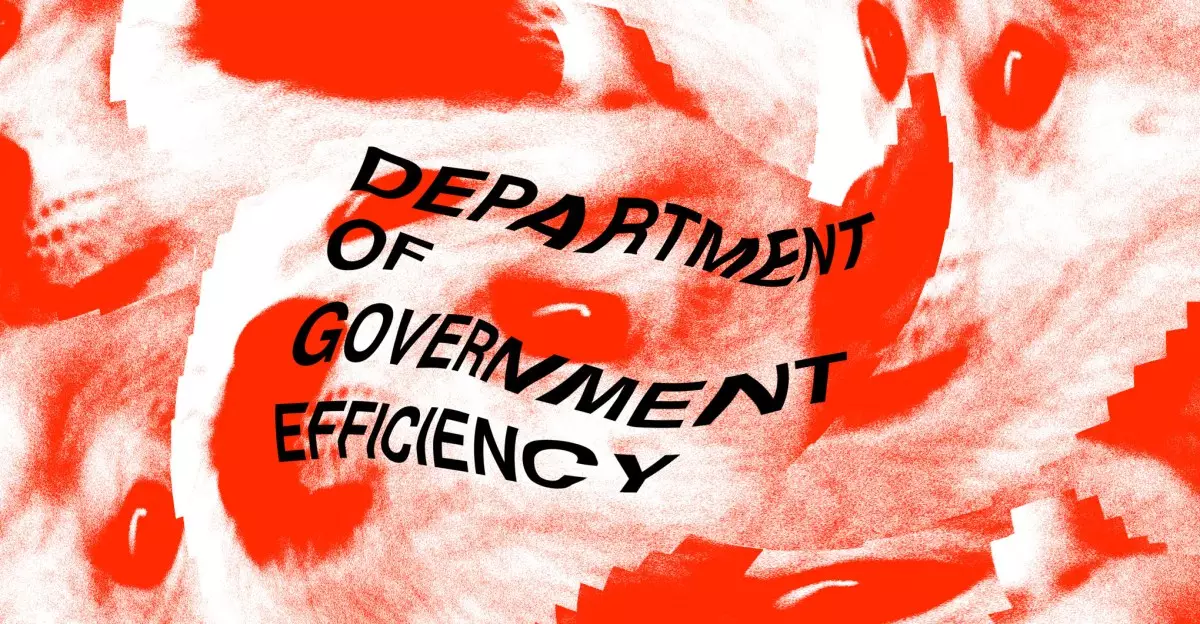In an audacious move aimed at streamlining access to Internal Revenue Service data, Elon Musk’s Department of Government Efficiency (DOGE) plans to develop a groundbreaking ‘mega API.’ This initiative, as highlighted by Wired, is positioned to bolster interconnectivity between IRS data and third-party software, potentially transforming how government data is utilized by private entities. The hackathon planned for next week, which aims to bring together a team of IRS engineers and technology experts, underscores a bold ambition—but it raises critical questions regarding the feasibility and implications of such an enormous undertaking.
Rushed Timelines and Technical Feasibility
The DOGE’s intent to roll out this API within an astonishingly brief 30-day timeline has sparked skepticism. Internal feedback suggests that achieving this goal is far from realistic. One unnamed IRS employee has voiced concerns that such a rapid deployment could “cripple” the agency, pointing to the complexity of the IRS system and data. Implementing a comprehensive API requires meticulous schematization and understanding of multifaceted taxation data, which, as experts suggest, could take years to accomplish—a timeline that seems to have been grossly underestimated by the DOGE team.
The juxtaposition of youth and audacity embodied by DOGE’s leadership—specifically the ambitious platforms championed by 25-year-old Gavin Kliger and CEO Sam Corcos—may reflect a disconnection from the operational realities of governmental agencies, particularly those as intricate and vital as the IRS. Their fresh approach, while refreshing, seems overly reliant on idealism rather than grounded in the experience demanded for such a massive project.
The Involvement of Controversial Third-Party Players
The potential inclusion of companies like Palantir brings an additional layer of controversy to the API project. Known for its role in government surveillance and analysis, Palantir’s participation could raise significant ethical questions concerning data privacy, security, and the potential misuse of sensitive taxpayer information. Moreover, the historical context of government agencies leveraging IRS data for purposes such as immigration enforcement, as raised in reports from Senator Ron Wyden, signals a troubling trend. This casts doubt on whether efficiency truly is the primary motivation or if there are more contentious underlying agendas at play.
The Challenges of Data Integration and Accountability
Integrating IRS data with third-party platforms introduces immense risks. The current skepticism surrounding DOGE’s project isn’t merely about rapid timelines; it also addresses data integrity, regulatory compliance, and accountability. Sensitive taxpayer information is not only a matter of operational efficiency but also a core public trust; mishandling it could result in violations of privacy rights and longstanding ethical concerns. The potential for technical missteps or misuse of data raises alarm bells, prompting a frank evaluation of whether this initiative genuinely serves the public or merely expedites bureaucratic processes.
As the ambitions of DOGE unfold in the coming weeks through this hackathon, it becomes essential to question not only the technical viability of their project but also the overarching motivations driving the desire for a more interconnected government data landscape—one that could work for or against the interests of the very taxpayers it is supposed to serve.


Leave a Reply